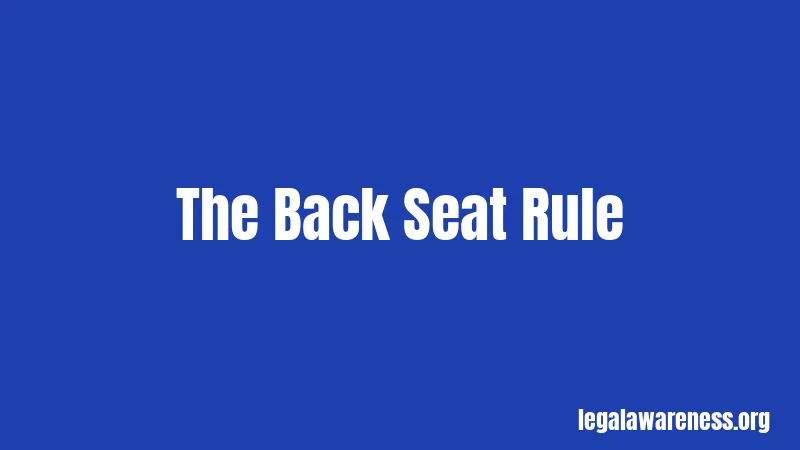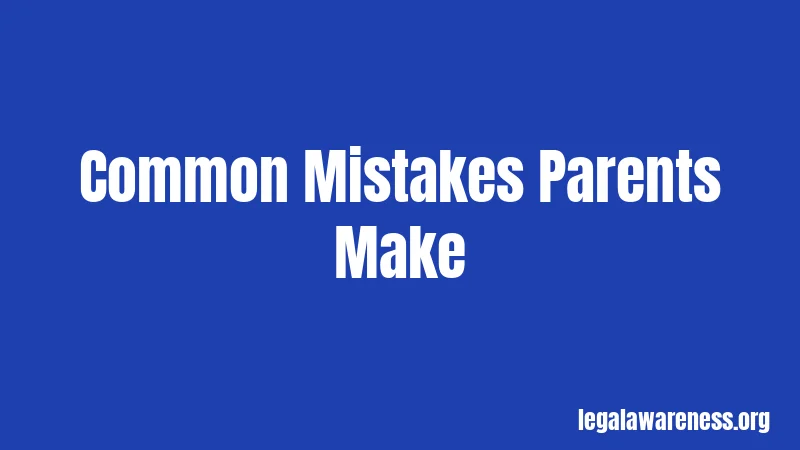Car Seat Laws in North Carolina (2026): Protect Your Kids Right
Most parents think they know the rules. They’re usually wrong. North Carolina’s car seat laws are stricter than you might expect, and the mistakes people make can literally put their kids at risk.
Here’s the deal. You could be breaking the law right now and not even know it. Let’s break down exactly what you need to do to keep your kids safe and avoid a ticket.
What Are Car Seat Laws?

Car seat laws tell you how to properly secure kids in your vehicle. They’re based on age, weight, and height. Pretty straightforward, right?
North Carolina updated these laws to match what experts know about child safety. The rules exist because car seats save lives. According to data from safety experts, car seats reduce the risk of fatal injury by 71% for infants and by 54% for toddlers.
Think of it like this. Your car has safety features designed for adults. Kids need extra protection because their bodies are still developing. Car seats provide that protection.
Basic Requirements You Need to Know
Okay, this one’s important. In North Carolina, children less than age 8 and less than 80 pounds must use a proper car seat or booster seat.
Notice it says “and” not “or.” Both conditions matter. Your 7-year-old who weighs 85 pounds doesn’t need a car seat. Your 9-year-old who weighs 75 pounds also doesn’t need one.
The law doesn’t tell you which type of seat to use at each age. It just says the seat must be weight-appropriate. You’ll follow the manufacturer’s instructions for your specific car seat.
Rear-Facing Car Seats
Young kids need rear-facing seats. The law doesn’t specify exact rear-facing requirements by age. But here’s what safety experts recommend.
Children under 2 years old or weighing less than 40 pounds should use rear-facing car seats. Many parents flip their kids around too early. Don’t be one of them.
Rear-facing seats protect your child’s head, neck, and spine better. The forces from a crash spread across their entire body. That’s huge for little kids whose bodies are still fragile.
Stay with me here. You should keep your kid rear-facing as long as possible. Check your car seat’s weight and height limits. Max those out before you switch to forward-facing.
Forward-Facing Car Seats
Once your child outgrows the rear-facing seat, you’ll move to a forward-facing seat with a harness. This typically happens around age 2 and 40 pounds.
Keep them in this seat until they hit the maximum weight or height for that seat. Don’t rush to a booster. The five-point harness provides better protection.
Booster Seats
After the forward-facing seat, kids move to boosters. They’ll use a booster with the vehicle’s lap and shoulder belt.
Children should remain in a booster seat until they are big enough to fit in a seat belt properly. This usually happens between ages 8 and 12.
Wondering if the belt fits right? Here’s the test. The lap belt should lie across the upper thighs, not the stomach. The shoulder belt should cross the chest and shoulder, not the neck or face.
The Back Seat Rule

Hold on, this part catches a lot of people. Children under 5 years old and weighing less than 40 pounds must be seated in the back seat if the vehicle has an active front passenger-side airbag.
Yep, that’s the law. Front airbags can seriously hurt or kill small children. The back seat is just safer all around.
There are only three exceptions. You can put a young child in the front if the vehicle doesn’t have a rear seat. Or if the vehicle doesn’t have an active front airbag. Or if the car seat is specifically designed for use with airbags.
Most car seats aren’t designed for front airbag use, honestly. Just put the kids in the back until they’re bigger.
Penalties and Fines
So what happens if you get caught breaking these rules? It’s not as bad as a speeding ticket, but you’ll still feel it.
Breaking this law can result in a $25 fine and two points on your driver’s license. Plus you’ll pay court costs of at least $120.
Wait, it gets better. If your child is under 8 and wasn’t properly restrained, you might avoid conviction. You’ll need to show the court that you bought an appropriate car seat after the violation. Basically, the court wants to see you fixed the problem.
Those two points on your license don’t affect your insurance rates. But they’re still on your record. And honestly, the real cost isn’t the fine. It’s the risk to your kid.
Common Mistakes Parents Make

Let me tell you what I see all the time. These mistakes are super common.
Wrong Seat for the Child’s Size
Parents rush their kids to the next stage. They move to a booster too early. Or they ditch the car seat when the kid turns 8, even if they’re tiny.
Use the right seat for your child’s actual size. Not their age. Not what their friends use. Their size.
Loose Installation
Here’s a quick test. Grab your car seat at the belt path. Try to move it side to side and front to back. If it moves more than an inch in any direction, it’s too loose.
Car seat harnesses should be snug and seat belts should be tight. No exceptions.
Rear-Facing Seats Near Airbags
This one’s dangerous. Never put a rear-facing car seat in front of an active airbag. The airbag can deploy and slam into the back of the seat. That can kill your child.
North Carolina specifically requires kids under 5 and under 40 pounds to ride in the back seat. There’s a good reason for that rule.
Not Replacing After an Accident
Did you know you need to replace your car seat after a moderate or severe crash? Even if it looks fine, the structure might be compromised.
Check with your insurance. Many policies cover replacement after an accident. Don’t take chances with a potentially damaged seat.
Upcoming Changes in December 2025
Okay, pause. Read this carefully. North Carolina lawmakers proposed updates to the car seat law in 2025.
The bill would require children under eight years old and less than 57 inches tall to use appropriate restraint systems. This would add a height requirement to the current law.
The proposed changes also provide clearer guidance on when kids can sit in the front seat. And they spell out when children can transition to regular seat belts.
These changes were scheduled to take effect December 1, 2025. Check the latest version of the law to see if they passed.
How to Get Free Help
Not sure if your car seat is installed right? You’re not alone. Studies show that nearly 80% of child safety seats are installed or used incorrectly.
Trust me, this works. North Carolina has over 295 permanent checking stations with trained technicians. They’ll inspect your installation for free.
You can find a station near you at BuckleUpNC.org. Fire stations, police departments, and hospitals often have certified technicians. Just call ahead to make an appointment.
AAA also offers free car seat inspections if you’re a member. Visit AAA.com/carseats to schedule.
The technicians will check if your seat is compatible with your vehicle. They’ll make sure it’s installed tightly and at the correct angle. They’ll adjust the harness to fit your child properly.
Some locations even provide free car seats to families who can’t afford them. Limited quantities, but worth asking about.
Special Circumstances
Sound complicated? It’s actually not. Let me break down some specific situations.
Vehicles Without Rear Seats
If your vehicle doesn’t have a rear seat, you can put your child in the front. Make sure to turn off the front passenger airbag if possible.
All Seats Occupied
If all seats with seat belts are occupied, any remaining children can legally ride unrestrained. This is rare but it happens with large families.
This doesn’t mean it’s safe. It’s just legal. Avoid this situation if you can.
Older Vehicles
Some older vehicles aren’t required to have seat belts. Passenger cars made before 1968 and trucks made before 1972 are exempt from the law.
But seriously, if you’re transporting kids regularly, use a vehicle with modern safety features.
Only Lap Belts Available
Sometimes only lap belts are available in certain seating positions. A child weighing at least 40 pounds can use a lap belt without a booster seat if no shoulder strap is available.
Again, this is legal but not ideal. A lap and shoulder belt provides better protection.
Making Sure the Seat Belt Fits Right
Once your kid outgrows the booster, they’ll use the regular seat belt. Don’t rush this transition.
The belt fits right when the lap belt lies flat across the upper thighs. Not the stomach. The shoulder belt should cross the chest and shoulder. Not the neck or face.
Your child should be able to sit all the way back against the seat. Their knees should bend comfortably at the edge of the seat. They should be able to stay in this position for the whole trip.
Most kids aren’t ready for this until they’re at least 4 feet 9 inches tall. That usually happens between ages 8 and 12.
Tips for Installation
Want to get this right the first time? Here’s what you need to do.
Read your car seat manual. Then read your vehicle owner’s manual. They both have important information about installation.
Most car seats can be installed using the vehicle’s seat belt or the LATCH system. LATCH stands for Lower Anchors and Tethers for Children. Pick one method and stick with it. Don’t use both at the same time unless the manual specifically says to.
Make sure the car seat is reclined at the right angle. Most rear-facing seats have angle indicators built in. Follow those guidelines.
The harness straps should be at or below your child’s shoulders for rear-facing. At or above the shoulders for forward-facing.
The chest clip should be at armpit level. Not on the stomach or neck.
You should only be able to fit one finger between the harness and your child’s collarbone. If you can fit more than that, it’s too loose.
Who Is Responsible?
The driver is responsible for all kids under 16 in the vehicle. Parents, grandparents, babysitters, friends giving rides. Whoever is driving.
You can’t tell a passenger, “You buckle your own kid.” As the driver, it’s your job to make sure everyone is properly secured.
Police can stop you just for seeing an unsecured child passenger. They don’t need another reason to pull you over.
Why These Laws Exist
Look, I get it. Car seat laws can seem complicated. But they save lives. Period.
North Carolina first passed the Child Passenger Protection Law in 1982. They’ve updated it multiple times based on new safety research.
Approximately 677 accidents occur every day in North Carolina. Your child’s car seat might be the difference between walking away from a crash or going to the hospital.
Modern car seats are tested extensively. They meet strict federal safety standards. But they only work if you use them correctly.
Checking for Recalls
Register your car seat with the manufacturer. This way you’ll get notified if there’s a recall.
You can also check for recalls at the National Highway Traffic Safety Administration website. It’s NHTSA.gov. They maintain a database of recalled car seats.
Never use a car seat that’s been recalled unless you’ve completed the recall remedy. The manufacturer will usually send you replacement parts for free.
Secondhand Car Seats
Can you use a hand-me-down car seat? Maybe. It depends.
Never use a car seat that’s been in a moderate or severe crash. The structure might be damaged even if you can’t see it.
Don’t use a car seat if you don’t know its full history. You need to know if it’s been in an accident. If it’s past its expiration date. If any parts are missing.
Check the expiration date on the car seat. Most seats expire 6 to 10 years after the manufacture date. The plastic degrades over time and won’t protect your child as well.
If the car seat came from a trusted friend or family member and meets all these conditions, it’s probably okay. When in doubt, get a new one.
Traveling from Other States
North Carolina’s laws apply when you’re driving in North Carolina. It doesn’t matter where your car is registered.
If you’re visiting from another state, you still need to follow NC rules. Some states have different requirements. North Carolina’s might be stricter or looser than what you’re used to.
Research the laws before you travel. Make sure your current setup meets NC requirements.
Frequently Asked Questions
When can my child sit in the front seat?
Children under 13 are safest in the back seat. The law requires kids under 5 and under 40 pounds to ride in the back if the vehicle has an active front airbag. After that, it’s your choice, but safety experts recommend the back seat until age 13.
Can I get a ticket if my child unbuckles themselves while driving?
Yes. The driver is responsible for ensuring all passengers under 16 are properly restrained. If your child unbuckles during the drive, you should pull over safely and re-buckle them.
What if I’m just driving a short distance?
The law applies to every trip, no matter how short. Most accidents happen close to home. Always use the proper restraints, even for quick trips to the store.
Do these rules apply to taxis and rideshares?
Yes. Taxis and rideshares must follow the same car seat laws. Many rideshare drivers don’t carry car seats, so you might need to bring your own or use a service that provides them.
What happens if I can’t afford a car seat?
Many fire departments, hospitals, and community organizations provide free car seats to families in need. Contact your local fire department or check with Safe Kids North Carolina. They often have programs to help families get the car seats they need.
Final Thoughts
North Carolina’s car seat laws aren’t that complicated once you understand them. Kids under 8 and under 80 pounds need car seats. Young kids need to be in the back. Use the right seat for your child’s size.
Get your installation checked by a certified technician. It’s free and it could save your child’s life. Don’t guess about something this important.
Now you know the basics. Keep your kids safe out there. And when in doubt, check with the experts at your local permanent checking station.
References
- North Carolina General Statutes § 20-137.1 – Child restraint systems required – https://www.ncleg.gov/EnactedLegislation/Statutes/PDF/BySection/Chapter_20/GS_20-137.1.pdf
- BuckleUpNC.org – North Carolina Child Passenger Safety Law Summary – https://www.buckleupnc.org/laws/child-passenger-safety-law-summary/
- North Carolina Department of Transportation – Car Seat Information and Resources – https://www.buckleupnc.org/
- National Highway Traffic Safety Administration – Car Seat Recommendations by Age – https://www.nhtsa.gov/
- Safe Kids Worldwide – North Carolina Car Seat Laws – https://www.safekids.org/state-law-tracker/child-passenger-safety-and-seat-belt-laws/nc
